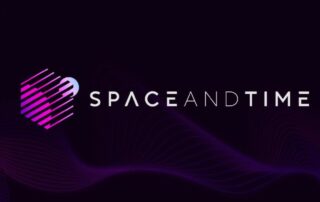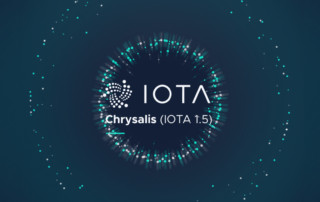Space and Time’s Data Warehouse Launches to Power Applications in a Verify-Everything World
Space and Time, a leader in decentralized data, today announces the beta release of its data warehouse and developer suite.
Venom Foundation Announces the Release of its Public Testnet
Venom, a Layer-1 blockchain that operates out of the Abu Dhabi Global Market (ADGM), today announced that its public testnet is officially live.
Cardano hardfork – buy the rumor, sell the news?
2021 was the year of the platform blockchain. Ethereum, Avalanche, and Solana deployed ecosystem updates that led to strong price growth. Now Cardano is set to undergo one of its biggest updates ever in the coming month. What impact will this have on price?
IOTA 1.5 slated for launch next week
The distributed ledger technology platform built to support the internet of things, IOTA, has just announced that it will be launching “Chrysalis,” or IOTA 1.5, next week. The tweet declaring the upgrade says Chrysalis will bring significant performance, usability, and reliability upgrades.
Elrond network gears up for July 30th Mainnet launch
Elrond is a proof-of-stake based blockchain platform and is set to launch its mainnet on July the 30th. Existing ERD holders who staked their tokens to the network will be part of a Genesis staking event that will occur based on a new Genesis smart contract.
IOST releases new roadmap for the second half of 2020
The IOST platform recently released a new roadmap update, commemorating achievements in the first half of 2020 and profiling new goals for the second half of the year.
TRON 4.0 slated for July 7th release
The fourth major iteration of the TRON blockchain project is set to be unveiled on the 7th of July. As specified by the Tron Foundation CEO, a key feature of this iteration will be a new smart contract privacy feature that utilizes Zk-Snark technology.
Vitalik Buterin states that the Ethereum Layer 2 scaling strategy is succeeding
The co-founder of Ethereum and the Ethereum Foundation, Vitalik Buterin, recently stated that Layer 2 scaling solutions are starting to show results. “While everyone wasn't looking,” Buterin tweeted, “the initial deployment of Ethereum's layer 2 scaling strategy has *basically* succeeded. What's left is refinement and deployment.”
MakerDAO shuts down Single Collateral DAI
The Makerdao community recently shut down the Single-Collateral DAI system. The stablecoin protocol has now switched over to the updated Multi-collateral DAI system.
Crypto projects to look forward to in 2018
2017 has been an important day for both Bitcoin and cryptocurrencies in general. While hopefully not as tumultuous, 2018 is looking like it will bring us a lot of interesting innovation in the space. Here are some of the things I'm personally looking forward to seeing unfold in the new year.
Three (non-pointless) permissioned blockchains in production
It’s exactly two years since we published “Avoiding the pointless blockchain project“, a checklist of questions to ask when assessing permissioned blockchain use cases. The post obviously struck a nerve and continues to attract thousands of monthly readers on our site and others. People are still hungry for content that goes beyond the blockchain hype to assess this technology objectively.
Bitcoin Core developers issue Segwit2x hard fork warning
On Wednesday morning, the Bitcoin Core development team released a rare statement concerning the safety of Bitcoin users’ coins during the potential hard fork for Segwit2x, which is scheduled to occur in November. The developers state that the hard fork is not supported by the majority of the Bitcoin users and developers, which makes it contentious, and therefore puts many user's bitcoins at risk if they store them with the wrong services.
W3C makes progress on web payment standards
Due to a recent update on a long-delayed upgrade to the underlying code of the internet, the world wide web is on the verge of adding a native payments system. The new specifications detail a suite of tools that allow merchants to accept many payment types, including Bitcoin, much more easily. The World Wide Web Consortium (W3C) has been working on a currency-agnostic web payment standard for more than two years. The 470-plus member organization is responsible for creating and maintaining the international standards for the world wide web and constantly works with the public and corporations to develop guidelines for its use.
OpenBazaar launches version 2.0 beta
The OpenBazaar project, led by the well-funded startup OB1, has been working towards delivering a mainstream-friendly version of their peer-to-peer marketplace application. The open source software directly connects people, circumventing the need for middlemen, and uses Bitcoin as the main payment method. This makes OpenBazzar a free online marketplace, with no fees or restrictions on what can be sold.
Bitcoin fees in decline
After the long-awaited activation of the Bitcoin network’s upgrade SegWit many questions quickly arose about when and how bitcoin users would start to enjoy its benefits. Once wallets and users employ the new SegWit format, blocks can theoretically grow as large as four megabytes each. In practice, however, developers have stated that they’ll be more likely to see 1.7 to 2.1 megabytes blocks. 80 wallet developers, exchanges, pools, and other Bitcoin projects indicated that they were ready for Segwit prior to activation, out of a of 137 entities listed on bitcoincore.org.
Making token sales smart
One of the core benefits of blockchains is that they enable you to transfer assets to anyone around the globe. These assets can be native “protocol tokens,” like bitcoin or ether. They can be “app tokens,” which are managed by small computer scripts running on the Ethereum blockchain known as smart contracts. Or tokens can represent real world assets, like a barrel of oil, diamonds, stocks, bonds, investment securities, a piece of machinery, or even a contract itself (e.g., a lease, deed, or title to property). Ethereum makes it relatively easy to create tokens. With less than a hundred lines of code, a software developer can create an ERC20 token, deploying a smart contract program on Ethereum that keeps track of who owns a given token at a particular point in time. Over the past several years, ERC20 tokens have taken the world by storm, with over $1.8 billion in tokens sold to date.















